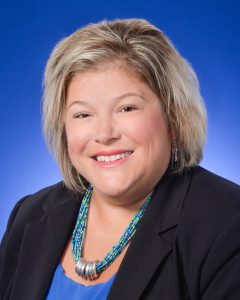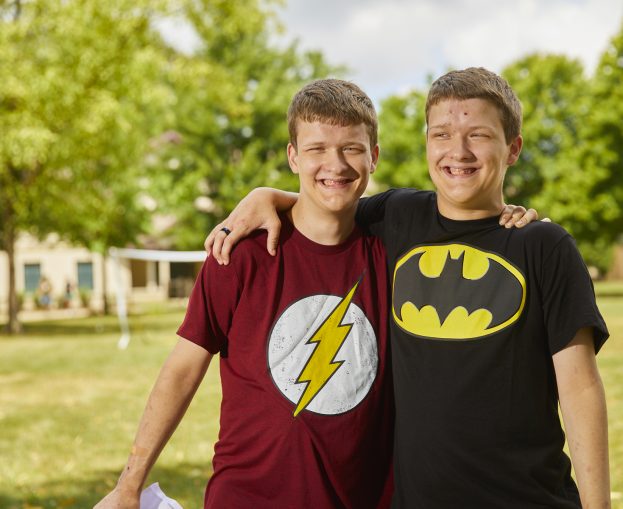As a psychologist and Director of Clinical Services, Dr. Danielle Nance leads Damar’s Stabilization, Assessment & Transition (SAT) program. She is responsible for managing a 20-bed short-term diagnostic and treatment unit that provides emergency placement and services for children who find themselves in traumatic situations. Dr. Nance holds a bachelor’s degree and a doctorate from the University of Indianapolis.
In Case of Emergency
3 minute read
I recently enjoyed a very special moment: I saw pictures of a young man who was smiling and laughing.
That might not sound like a big deal, but for some of the children I see on a daily basis, smiles and laughter can be hard to come by … and they had been particularly rare for this young man.
You see, as Damar’s Director of Clinical Services, I head up the 20-bed Stabilization, Assessment & Transition (SAT) program, which provides emergency shelter and assessment for children with intellectual and developmental disabilities. These children and their families have experienced a tremendous amount of trauma and are struggling to find hope and support in overcoming their situations. Many of them have significant special needs, and all of them are dealing with a lot of challenges.
Damar created the SAT program in response to the needs of the Department of Children’s Services, which wanted a resource like this so it could respond quickly to these situations. Too often in the past, the kinds of crises in which these kids find themselves might have led to their being bounced from temporary location to temporary location, or into the justice system without ever receiving the kind of assessment or treatment they need.
With SAT, we can accept these young people up to age 17 at any time of the day or night, seven days a week. Once admitted, a child stays with us up to 60 days, which means three things can happen: The young person will have time to find respite from traumatic situations and begin a healing and growing process; we can conduct a comprehensive evaluation and diagnostic assessment with specific recommendations to both short term and long term needs of the child and family; and their family, caregivers and other champions can map out a course for the future.
Our goal? To get the child to a safe place, and then prepare him or her to grow and flourish and return to a suitable residential setting, preferably at home.
The challenges we encounter in this process can vary widely. Sometimes the biggest hurdle is managing the many medications these kids might be previously described. . We might be dealing with kids who want to act out or who seem to be a threat to themselves or others. It could be they seem oppositional or defiant when, in fact, their actions are being misunderstood. In some cases, the child is dealing with an untreated or under-addressed mental illness.
That was the case with the young man I spoke of at the beginning of this post. We were told that he was very oppositional, but the truth is, he wasn’t. He had major depression, felt terribly lethargic and simply didn’t want to be around people. And this wasn’t his first time to have serious problems: He was on probation for previous troubles. Needless to say, his life did not lend itself to a lot of laughter.
And so we dove in. We gathered all the information we could, worked with him and did a complete assessment of his situation, disabilities, mental illness and more. In collaboration with a psychiatrist and a medical doctor, we diagnosed complicating factors and made a number of changes in his medication. Meanwhile, we worked with his family so they could understand the situation and prepare to re-connect with him.
Over time, the young man was able to transition back home, and things have gone much better. He’s in school. He and his mom have been communicating much better than in the past. He’s more social and connected to others.
And, every now and then, he actually smiles and laughs – something he seldom did before coming to the SAT program.
Now, I don’t mean to suggest that my job is to put a smile on a young man’s face, or that every child will come out of the SAT program with a happy ending. However, I do know that the children we see need services immediately, experts who can address their needs, and compassion that aims toward giving them better lives. On those counts, I am proud of my team and its ability to help.





